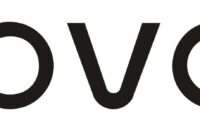NEW YORK, June 20, 2017 /PRNewswire/ — Mount Sinai Heart and BioImage-2 LLC, today announced start of the BioImage-2 study. The BioImage-2 study investigates the progression of vascular atherosclerotic plaque in patients who previously participated in the BioImage study. That landmark study recruited 7,687 volunteer participants from Humana members in Greater Chicago and Fort Lauderdale, FL, without known heart or blood vessel disease. The BioImage participants were between the ages of 55 and 80 years of age. A total of 6,104 participants underwent a variety of imaging studies, including a novel method of performing ultrasound of the carotid arteries. The carotid arteries supply blood to the brain and are easily accessible in the neck.
“Today a broad range of options exist for prevention of atherosclerotic vessel disease, which may lead to heart attack and stroke,” said Valentin Fuster, MD, Director, Mount Sinai Heart and Physician-in-Chief, The Mount Sinai Hospital, and principal investigator of the BioImage-2 study. “If we can identify and characterize subclinical disease early and monitor this over the years, this may one day help us to better identify those who stand to gain most from the intensive preventive therapy options now available.”
The original BioImage study was conducted between January 2008 and June 2009, and required that participants make a single visit to a BioImage research center. The study provided important new insights in the presence of atherosclerotic plaque disease in the large arteries and how this information can improve identification of those at risk for heart attack or stroke.
The new BioImage-2 study aims to recruit a minimum of 1,000 former participants of the original BioImage study. Conducted in collaboration with ChenMed, a leading provider of health care for seniors, the objective of BioImage-2 is to investigate the natural progression of plaque disease over the approximately nine years since the original BioImage exam.
The new study will help with the development of methods to one day make carotid ultrasound imaging part of routine clinical practice. This novel method of carotid ultrasound may better inform physicians and their patients to allow them to make the best personal health decisions for the prevention of heart attack and stroke. The BioImage-2 study is made possible through support from Philips Healthcare and the Investigator-Sponsored Study Program of AstraZeneca.
“The BioImage study indicated the potential of ultrasound imaging to better identify those at risk for major cardiovascular events,” said Pieter Muntendam, MD, who is co-principal investigator of the BioImage-2 study and previously led the original BioImage study and the multi-company HRP consortium that funded it. “BioImage-2 will help us develop and test the tools that would put this on a path to use in clinical practice to better tailor preventive therapies.”
“Advancing cardiovascular health and well-being through involvement with research is one of the priorities for the ChenMed organization,” said Christopher Chen, MD, cardiologist and ChenMed Chief Executive Officer. “Our South Florida doctors are grateful to be helping to make BioImage-2 a convenient and informative experience for all study participants.”
BioImage-2 study participants will make a single visit to a mobile BioImage-2 research center located at one or more of the dozen Chen Senior Medical Centers serving Medicare beneficiaries in South Florida. For more information about the BioImage-2 study visit www.bioimage-2.com.
About ChenMed
ChenMed is a health care provider founded to bring concierge-style medicine — and better health outcomes — to the neediest populations. ChenMed serves seniors with low-to-moderate incomes, most managing multiple chronic conditions, in nine U.S. markets through 39 senior medical centers. As a fully capitated Medicare Advantage provider, ChenMed empowers primary care physicians to deliver a VIP healthcare experience that earns trust – all with minimal to no expense to the beneficiary. ChenMed PCPs better manage chronic diseases and keep patients healthy, resulting in fewer hospital days. Patients enjoy better disease detection rates; enhanced care coordination; best-in-class access to doctors and specialists; on-site medication delivery and tests; and courtesy transportation is available. For more information visit www.ChenMed.com or www.ChenMedicalCenters.com.






